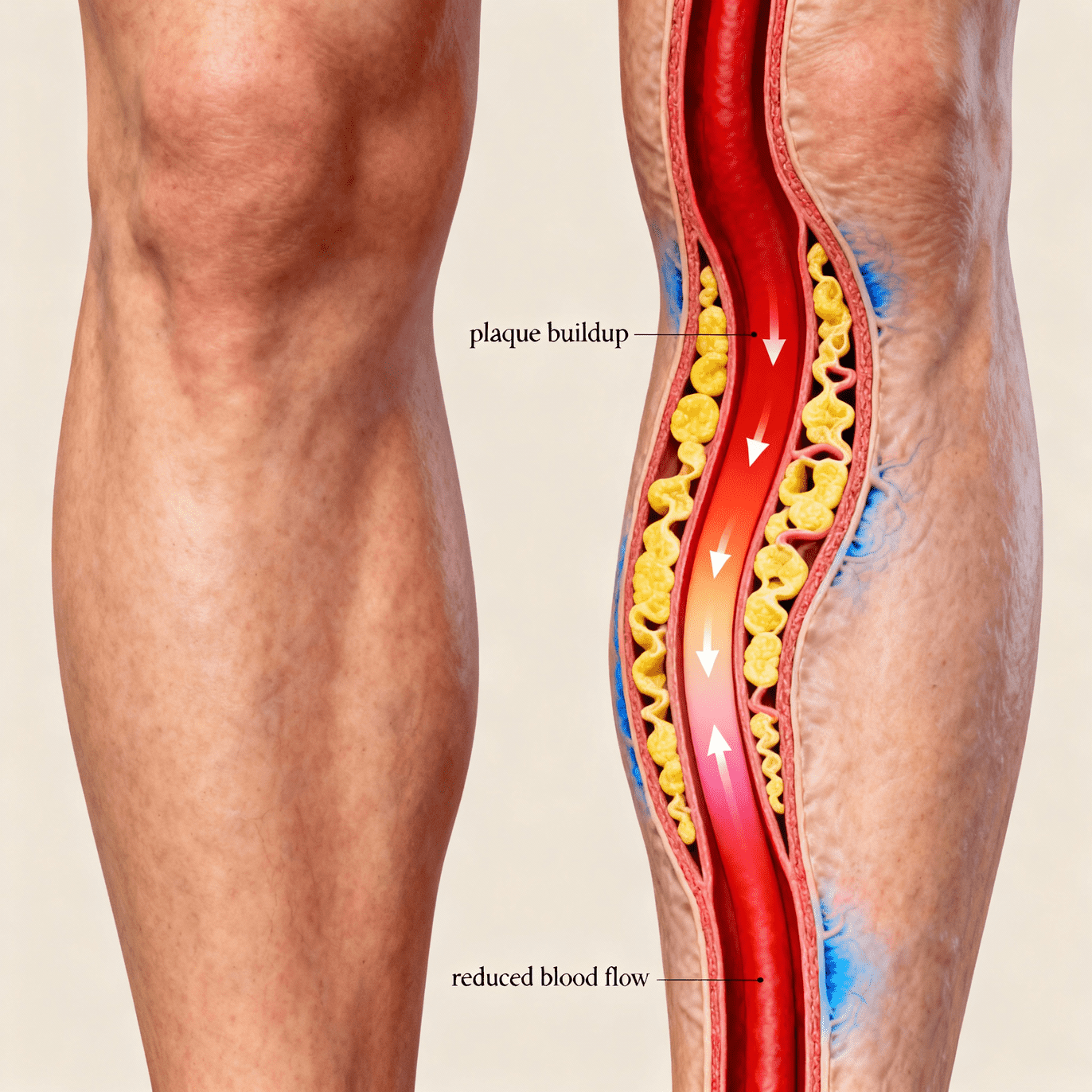
Peripheral Arterial Disease (PAD) affects millions worldwide, yet many remain unaware of this serious vascular condition. If you're searching for “PAD treatment near me” or experiencing leg pain while walking, this guide will help you understand what PAD is, its causes, symptoms, and the best treatment options available — especially in Hyderabad.
Peripheral Arterial Disease (PAD) occurs when narrowed arteries reduce blood flow to the limbs, most commonly the legs. Fatty deposits (plaque) build up in the arterial walls, a condition known as atherosclerosis.
Why it matters:
PAD affects over 200 million people globally and significantly increases the risk of heart attack and stroke.
Atherosclerosis: Plaque buildup in arteries
Blood clots: Blockages that restrict blood flow
Age: Risk rises after age 50
Lifestyle factors: Smoking, poor diet, physical inactivity
Medical conditions: Diabetes, high blood pressure, high cholesterol
Claudication: Leg pain or cramping during walking
Muscle fatigue: Legs tire quickly during activity
Coldness: One leg may feel colder than the other
Numbness: Reduced sensation in the legs
Rest pain: Pain even at rest
Non-healing wounds: Sores that don’t heal properly
Skin colour changes: Pale or bluish skin
Hair loss: Thinning or loss of hair on the legs
Smoking: Increases PAD risk 2–6x
Diabetes: Strongly linked with PAD
Age: Risk doubles every 10 years after 50
Hypertension & cholesterol: Accelerate artery damage
Family history: Genetic predisposition
Ankle-brachial index (ABI) test Hyderabad: Measures blood pressure in arms and ankles
Doppler ultrasound: Evaluates blood flow
Physical examination: Checks pulses and skin condition
CT/MRI angiography: For detailed imaging if needed
Lifestyle changes: Exercise, diet, quitting smoking
Medications: Blood thinners, cholesterol-lowering drugs
PAD non-surgical treatment near me: Best for early-stage PAD
PAD angioplasty procedure Hyderabad: Balloon to open blocked arteries
PAD stent surgery: Keeps arteries open
PAD laser treatment Hyderabad: Laser removes plaque
PAD bypass surgery Hyderabad: Reroutes blood flow around blockages
Endovascular treatment for PAD Hyderabad: Catheter-based procedures for severe cases
When choosing a vascular clinic in Hyderabad, look for:
Board-certified vascular specialist and vascular intervention radiologist
Advanced diagnostic facilities
Comprehensive treatment options
Experienced wound-care specialists
Specialized Services:
PAD screening test Hyderabad
Diabetic PAD management Hyderabad
PAD leg ulcer treatment Hyderabad
Minimally invasive PAD treatment Hyderabad
Quit smoking
Regular exercise (walking programs improve circulation)
Healthy diet with low cholesterol
Control diabetes and blood pressure
Annual vascular health check-ups
Seek Immediate Care for:
Sudden severe leg pain + coldness
Non-healing wounds
Signs of leg infection
Book a Routine Consultation if:
You have diabetes or smoke
You are over 50 with cardiovascular risks
You have persistent leg pain while walking
Expert Insights
Dr. Shailesh Kumar GARGE, Vascular Surgeon at Citi Vascular Hospital, shares:
"Early detection and proper PAD treatment can prevent serious complications and improve quality of life. Our hospital provides advanced, minimally invasive options for effective outcomes."
Understanding PAD is crucial for preventing complications like limb amputation, heart attack, and stroke. If you have risk factors or symptoms, schedule a PAD screening test in Hyderabad today.
Contact Dr. Shailesh Kumar GARGE at Citi Vascular Hospital, K.P.H.B Road No 1, Hyderabad.
Call Now: 7337583901
Frequently Asked Questions (FAQs)
Q1: Can PAD be cured?
A1: While PAD cannot always be completely cured, proper treatment can stop its progression and significantly improve symptoms.
Q2: How much does PAD treatment cost in Hyderabad?
A2: The cost varies by procedure type and severity. Most treatments are insurance-covered.
Q3: Who is the best PAD doctor in Hyderabad?
A3: Look for a board-certified vascular surgeon with extensive PAD experience and access to modern facilities.
This article is for informational purposes only and does not substitute professional medical advice. Always consult a qualified healthcare provider for diagnosis and treatment.